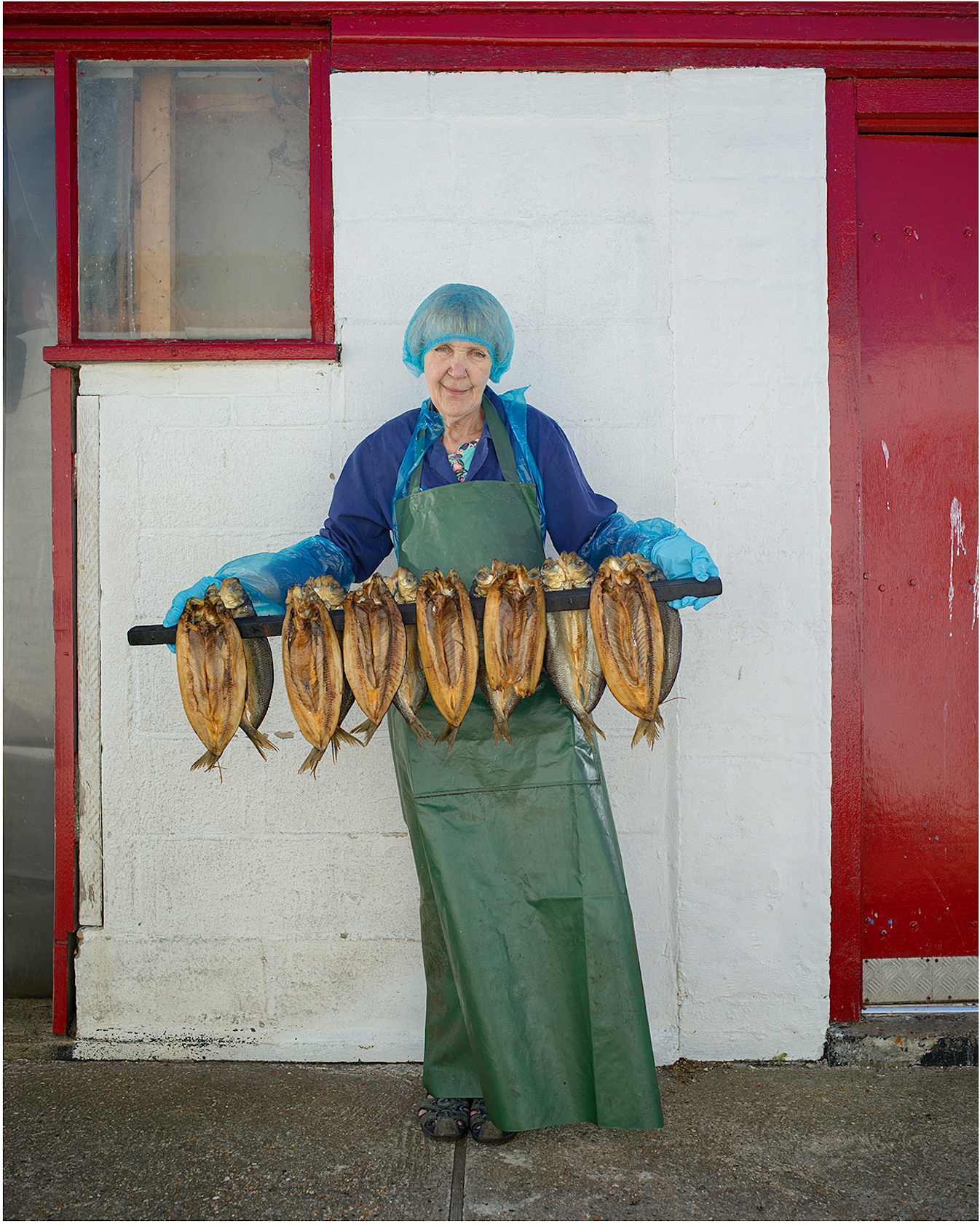Glynis Skews, a smoker from Lowestoft in 2019. Glynis works in the fish processing sector in Lowestoft, on an industrial estate by the north denes where the old herring net drying posts are, near the modern fishing harbour. Glynis and her husband set up a speciality smokehouse called Waveney Valley in ‘their retirement’ – although they are very actively involved in running it and working there.
Collected by Craig Easton
With just three staff, they supply high end smoked products to food services and directly to the public. This photo shows Glynis holding a ‘tenter stick’ with the kippers on ‘tenterhooks’. Kippers are herring split and gutted, then cold-smoked. Herring that are cold-smoked whole are known as ‘bloaters’ – a local speciality, traditional to East Anglia, particularly to the neighbouring town of Great Yarmouth. However, they are no longer so common anymore.
Lowestoft was known for its herring fishing along with Great Yarmouth, which declined progressively from the 1960s and 1970s as it became increasingly industrialised until a moratorium was put in place to stop herring fishing in the late 1970s. While the fishery reopened a few years later and stocks showed signs of recovery, domestic demand and overseas markets did not. Today, herring is still smoked locally, but on a much smaller scale, and sold as a niche product by Glynis and others. It has high cultural significance and heritage. Aside from this, the main processing sector in Lowestoft now processes a much greater variety of fish for wider distribution. As the local supply from the reduced fishing fleet is no longer sufficient, it relies on buying fresh fish from around the country and imports from abroad. Increasingly this includes shellfish – which now accounts for a majority of seafood production in the UK, particularly as it is not restricted by quota and is of high value.
